AP Psychology Sample Free-Response Question
January 24, 2025
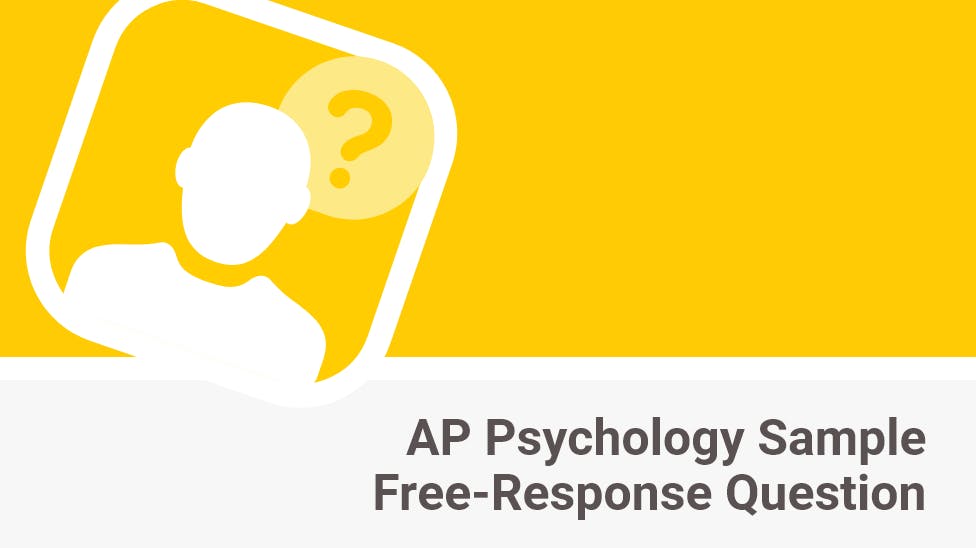
Beginning with the 2025 AP Psychology exam, the free-response section of the exam consists of two free-response questions: the Article Analysis Question (AAQ) and the Evidence-Based Question (EBQ). Read the following sample AP Psychology free-response question, grading rubric, and answer for an idea of what you’ll see on the AP Psychology exam.
How to Approach AP Psychology Free-Response Questions
Below is a sample AAQ free-response question similar to one you would find on the AP Psychology exam. The purpose of the AAQ is to measure how well you can apply six research methods concepts to a summary of a research study. The source document (see below) will explain the overall goal and context of the study (introduction), details about the subjects in the study (participants), how the researchers gathered the data (method), and the resulting data and the researchers’ conclusions based on the data (results and discussion)
When you start the AAQ section on the AP Psychology exam, the first thing you will see will be the research summary you will use to answer the questions. Spend 10 minutes reading through the research summary below.
You may want to take notes about what you find regarding:
(A) The research method
(B) How the dependent variable is operationally defined
(C) Basic statistics from the study
(D) An ethical issue related to the study
(E) Whether the findings of the study might be generalizable
(F) How the findings of the study support or do not support the hypothesis
Sample AP Psychology Free-Response Question
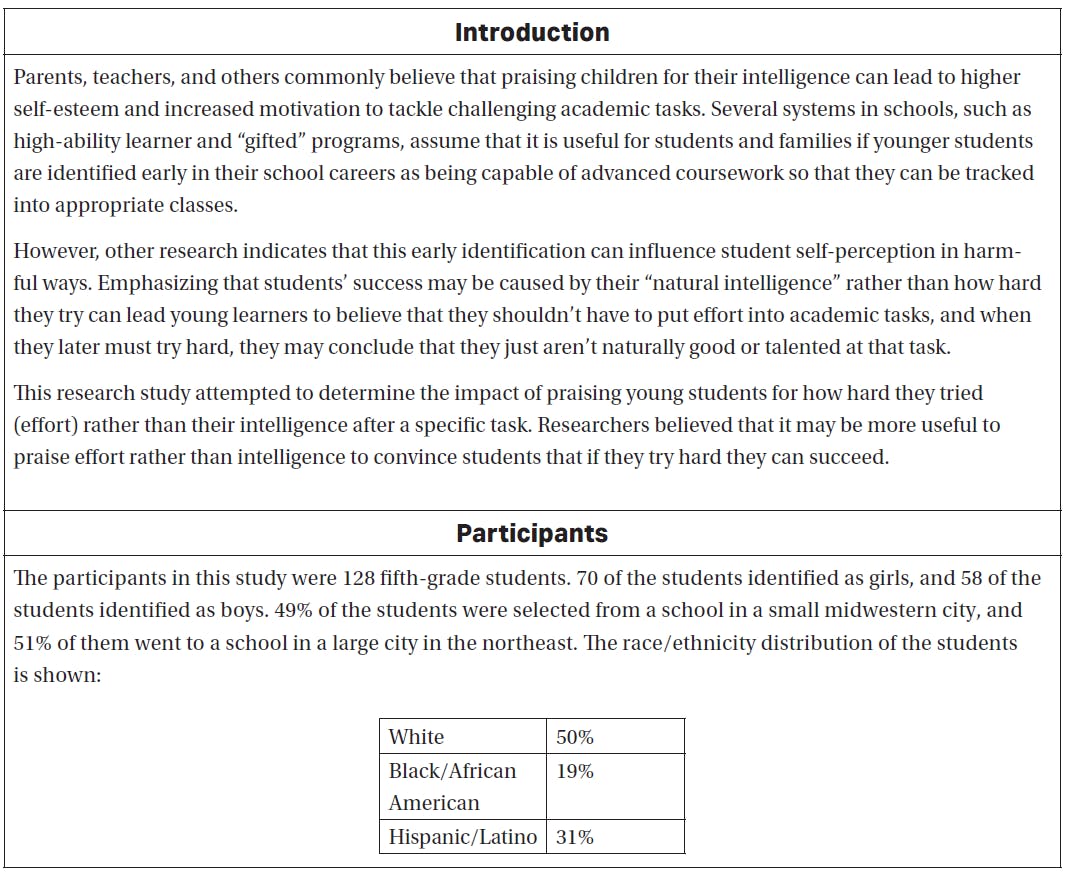
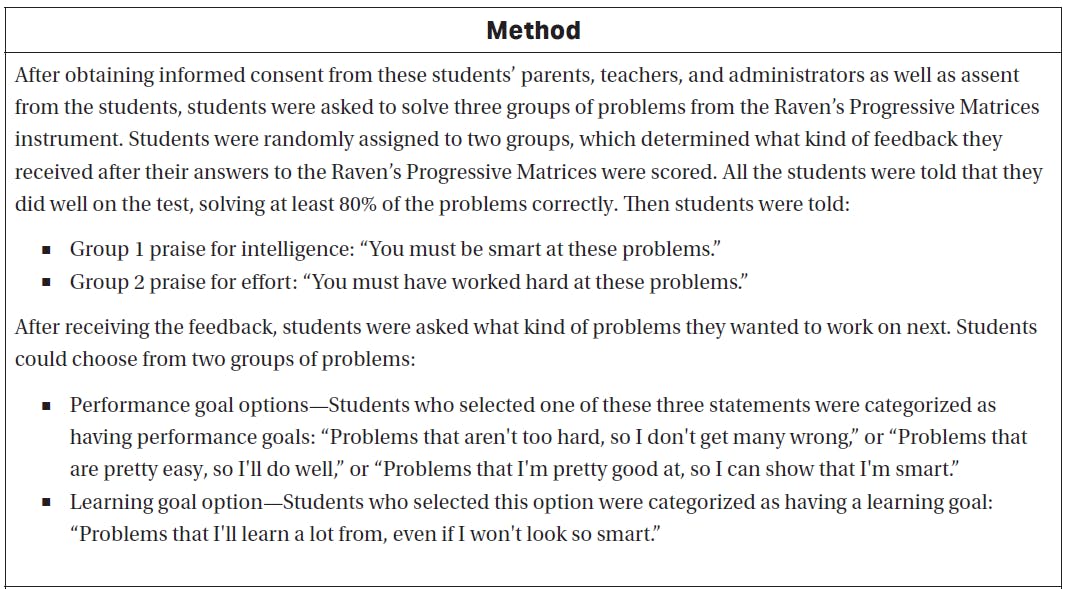
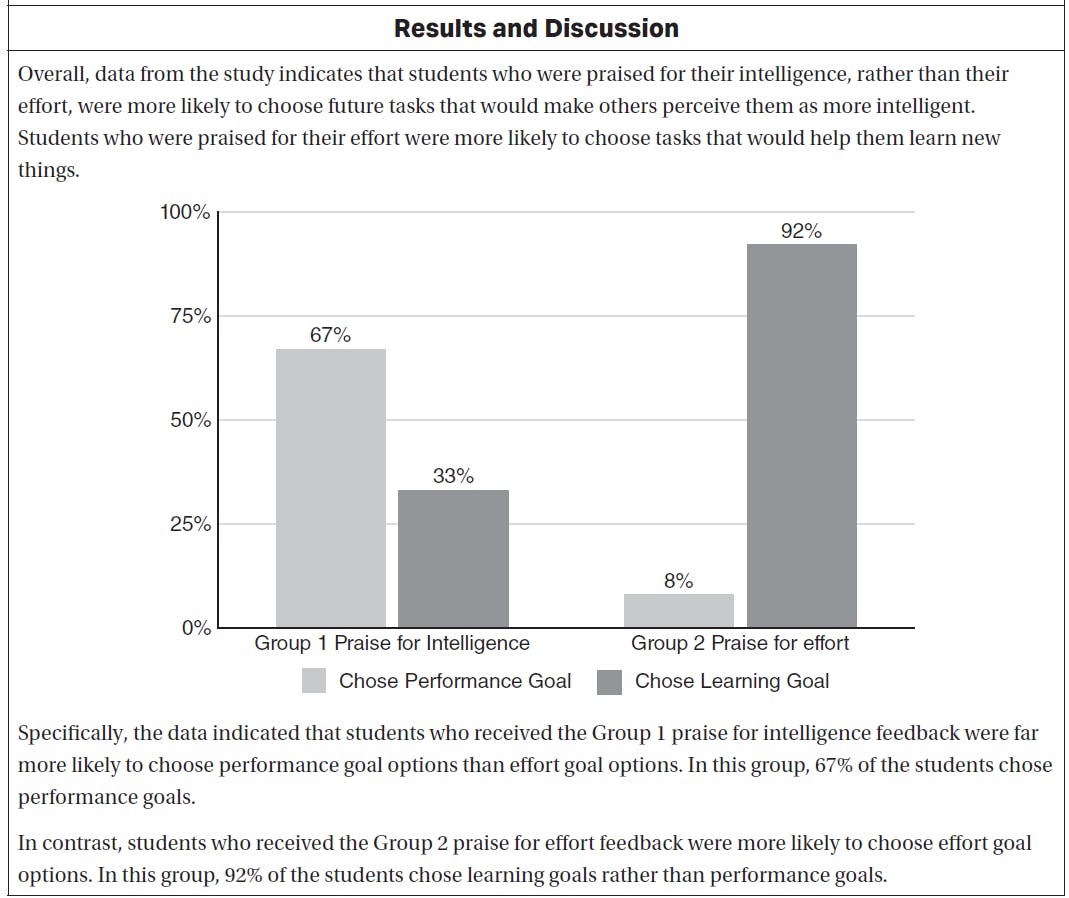
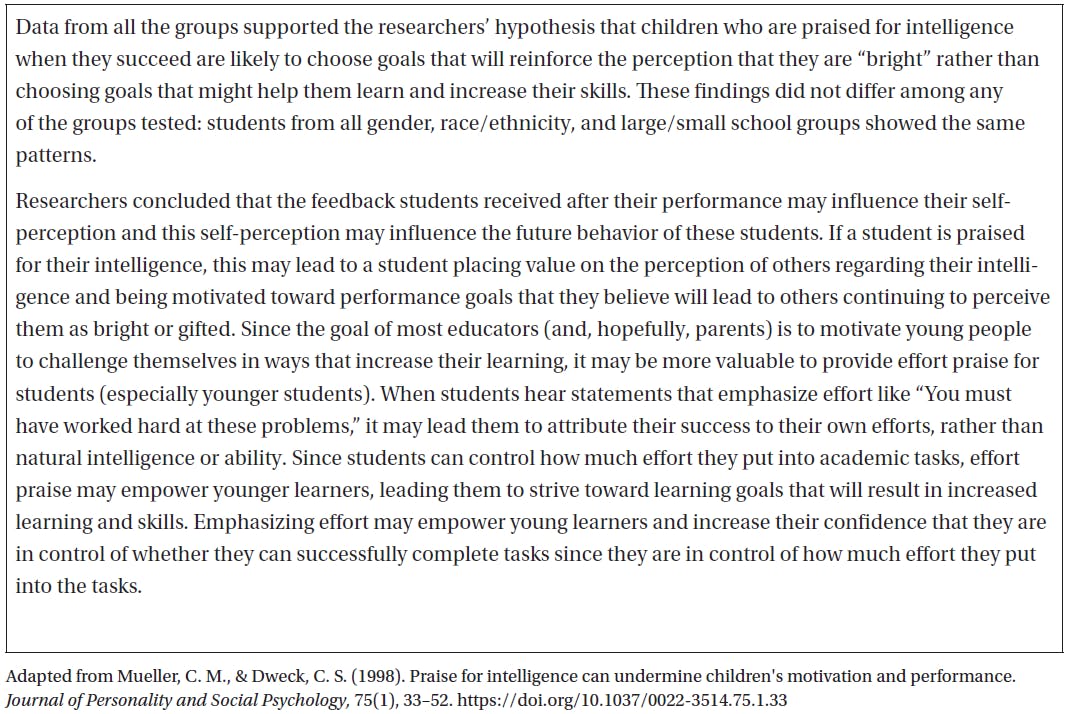
Answering the Sample AP Psychology Free-Response Question
After the 10-minute reading period, you’ll start answering the AAQ questions about the research summary. Remember that you aren’t writing an overall essay: each of these AAQ questions is its own short-answer question. Write your answer in complete sentences in the space provided, read through your answer to make sure it expresses what you want to say, add anything that you think might help a reader understand exactly what you mean, and then move on to the next question.
AP Psychology Free-Response Question Scoring Rubric
Read through the sample student answer to each of the AAQ questions, the summary of the scoring guide (rubric), and then decide how many points YOU think the sample student answer should score. Then go on and read the explanation for how we think the sample student answer should be scored. This process should help you understand what you need to write in order to convince your reader that you know how to apply these concepts (and get you maximum score of 7 points!).
AAQ Part (A): Research Method
(A) Identify the research method used in the study. To get a point for (A), students need to correctly identify the research method used in the study.
Sample Student Answer | (A) Scoring Guide |
|---|---|
This study used the experimental research method. I know it was an experiment because there were two groups. One group got one kind of praise, and the other group got a different kind of praise. | This response earns 1 point because the student correctly identified the method used in the study as an experiment. |
AAQ Part (B): How the Dependent Variable Is Operationally Defined
(B) State the operational definition of learning motivation in the study. To get a point for (B), students need to explain the measurable definition of the variable identified in this study. In this case, that variable is learning motivation.
Sample Student Answer | (B) Scoring Guide |
|---|---|
In this study, the researchers measured learning motivation by checking to see what kind of future problems students chose. Some students chose the performance goal option, and some chose the learning goal option. That choice is the operational definition of learning motivation. | This response would score 1 point because the student correctly identifies how learning motivation is measured (operationally defined) in the study (through the participants’ choice of the type of future problem to solve). |
AAQ Part (C): Basic Statistics from the Study
(C) Describe the meaning of the differences in results for the praise for intelligence and for the praise for effort groups. To get a point for (C), students need to accurately explain the relevant statistic within the context of the study.
Sample Student Answer | (C) Scoring Guide |
|---|---|
According to data from the study, the students who were praised for their effort were much more likely to choose the learning goal than the performance goal: 92% of these students chose the learning goal. Students who were praised for their intelligence were more likely to choose the performance goal: 67% of these students chose the performance goal. | This response would score 1 point because the student accurately identified the statistic—the percentage of students in each group who chose each kind of goal—and explained that difference in the context of the study. |
AAQ Part (D): An Ethical Issue Related to the Study
(D) Identify at least one ethical guideline applied by the researchers. To get a point for (D), students need to identify at least one relevant ethical consideration about the study.
Sample Student Answer | (D) Scoring Guide |
|---|---|
In this study, one of the potential ethical problems might be whether the students might be harmed in the long term because of the kind of praise they received during the study. They got informed consent from the parents and that’s good, but what if some students end up changing their learning motivation permanently because of the praise? Did they debrief later with the students? | This response would score 1 point because the student actually identified more than one ethical element of the study: the student mentioned informed consent and the possibility of long-term harm. |
AAQ Part (E): Whether the Findings of the Study Might be Generalizable
(E) Explain the extent to which the research findings may or may not be generalizable using specific and relevant evidence from the study. To get a point for (E), students need to explain why they think the results of the study are or are not generalizable using relevant evidence from the research summary.
Sample Student Answer | (E) Scoring Guide |
|---|---|
This study is probably generalizable because the researchers were pretty careful about the students they chose. They got a pretty big group (128 kids), and they chose them from two different kinds of schools: a small, midwestern school and a large, East Coast school. So these results can probably be generalized to all young students. | This response would score 1 point because the student used relevant evidence—the number of students and the kinds of schools the students were selected from—to explain why they think this participant sample convinces them that the findings are generalizable. |
AAQ Part (F): How the Findings of the Study Support or Do Not Support the Hypothesis
(F) Explain how at least one of the research findings supports or refutes the researchers’ hypothesis about the impact of praise for intelligence or effort. In (F), students can get 1 point for using appropriate evidence but not having a complete explanation. Students can get 2 points for using appropriate evidence AND including a complete argument/explanation for how that evidence shows that the hypothesis is or is not supported.
Sample Student Answer | (F) Scoring Guide |
|---|---|
These findings definitely support what the researchers wanted to figure out in this study. In the introduction, the summary states that the researchers wanted to figure out what the impact is for praising students for how hard they tried versus praising students for their intelligence. They definitely did that. Their results show that praising kids for their effort leads them to choose tasks that they might actually learn from, and praising them for their intelligence just leads them to choose tasks that will increase the perception of how smart they are. | This response would score 2 points because the student used relevant evidence—the results that show the impact for praise vs. effort. They use this evidence to show how the study supported the researchers’ hypothesis: that the kind of praise has an impact on future learning choices. |
With these responses, this sample student would score 7 points on the AAQ item—the maximum number of points possible in this section of the AP Psychology exam.
AP Biology Resources
- About the AP Biology Exam
- Top AP Biology Exam Strategies
- Top 5 Study Topics and Tips for the AP Biology Exam
- AP Biology Short Free-Response Questions
- AP Biology Long Free-Response Questions
AP Psychology Resources
- What’s Tested on the AP Psychology Exam?
- Top 5 Study Tips for the AP Psychology Exam
- AP Psychology Key Terms
- Top AP Psychology Exam Multiple-Choice Question Tips
- Top AP Psychology Exam Free Response Questions Tips
- AP Psychology Sample Free Response Question
AP English Language and Composition Resources
- What’s Tested on the AP English Language and Composition Exam?
- Top 5 Tips for the AP English Language and Composition Exam
- Top Reading Techniques for the AP English Language and Composition Exam
- How to Answer the AP English Language and Composition Essay Questions
- AP English Language and Composition Exam Sample Essay Questions
- AP English Language and Composition Exam Multiple-Choice Questions
